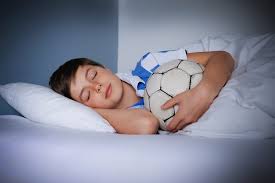In elite sports, every detail matters. From meal timing to muscle recovery, nothing is left to chance. But one of the most underrated and powerful tools in an athlete’s arsenal doesn’t come from a gym, lab, or supplement it comes from the bedroom. Sleep, once treated as a passive afterthought, is now being recognized as a cornerstone of peak athletic performance.Why Sleep Matters: The Foundation of RecoveryAt its core, sleep is the body’s natural recovery mechanism. During deep sleep, growth hormone is released, which is essential for tissue repair, muscle growth, and bone strengthening. Sleep is also the time when the brain consolidates learning, processes emotions, and resets for the challenges ahead.For elite athletes who push their bodies to the limit, this recovery is not just helpful it’s crucial. Without adequate sleep, recovery slows down, inflammation increases, and the risk of injury skyrockets. Lack of sleep can lead to decreased glycogen storage, slower reaction times, poor decision-making, and lower energy levels all factors that can cost an athlete a game, a title, or even a career.Scientific Evidence: Sleep Equals SuccessMultiple studies have shown direct correlations between sleep and athletic performance. One of the most cited is the Stanford University study that observed college basketball players who extended their sleep to 10 hours per night over several weeks. The result? Faster sprint times, improved shooting accuracy, and better overall performance.In another study, swimmers who focused on getting more quality sleep improved reaction times, turn times, and even mood. Tennis players who prioritized sleep recorded faster serve accuracy, and track athletes saw improved split times. Across sports, the message is consistent: more quality sleep leads to better results.The Mental Edge: Sleep and the BrainAthletes often talk about being “in the zone” a heightened state of focus and clarity. Sleep plays a vital role in achieving that mental state. It strengthens memory, aids in learning complex plays or strategies, and helps regulate emotions under pressure. In sports where split-second decisions can change the outcome, a well-rested brain is just as important as a strong body.Top athletes like Roger Federer, LeBron James, and Tom Brady all emphasize the importance of sleep in their daily routines. LeBron has publicly said he aims for 8–10 hours of sleep per night and even naps during the day. Federer reportedly sleeps up to 12 hours, including naps, during tournaments. Tom Brady incorporates sleep tracking and prioritizes strict sleep hygiene as part of his longevity strategy.Culture Shift: Sleep as a Performance StrategyThe old-school mentality of grinding with little rest is fading fast. More athletes and organizations are embracing sleep science as a competitive edge. NBA and NFL teams have hired sleep coaches. Olympic training centers use sleep pods and track athletes’ circadian rhythms. Even wearable tech like WHOOP and Oura Rings are now standard tools, helping athletes monitor sleep quality and optimize training schedules.Sleep is no longer seen as downtime it’s considered a vital part of the training cycle. Teams adjust travel schedules to limit jet lag, design training around individual chronotypes, and even develop nap rooms in facilities to encourage midday rest.The Sleep Crisis in Modern SportDespite the clear benefits, many athletes still struggle to get the rest they need. Travel across time zones, early morning training, late-night games, and the mental toll of competition can all interfere with sleep. Add to that the pressure from media, fans, and sponsors, and it’s easy to see why some athletes fall into a cycle of poor rest and overtraining.This is where sleep education and individualized strategies come in. Understanding sleep hygiene like reducing screen time before bed, maintaining a consistent bedtime, and optimizing sleep environments is now considered part of a complete athlete development program.Conclusion: Sleep Isn’t Weak—It’s WinningIn a world where milliseconds matter and margins of victory are razor-thin, athletes are always searching for the next advantage. The smartest ones are turning to something ancient, natural, and free: sleep.More than just rest, sleep is the secret weapon that fuels greatness. It’s where strength is restored, skills are cemented, and the mind is sharpened. In the battle for gold medals, world records, and championship rings, the athlete who sleeps better might just wake up as the winner.

